
-
 Afrikaans
Afrikaans -
 Albanian
Albanian -
 Amharic
Amharic -
 Arabic
Arabic -
 Armenian
Armenian -
 Azerbaijani
Azerbaijani -
 Basque
Basque -
 Belarusian
Belarusian -
 Bengali
Bengali -
 Bosnian
Bosnian -
 Bulgarian
Bulgarian -
 Catalan
Catalan -
 Cebuano
Cebuano -
 Corsican
Corsican -
 Croatian
Croatian -
 Czech
Czech -
 Danish
Danish -
 Dutch
Dutch -
 English
English -
 Esperanto
Esperanto -
 Estonian
Estonian -
 Finnish
Finnish -
 French
French -
 Frisian
Frisian -
 Galician
Galician -
 Georgian
Georgian -
 German
German -
 Greek
Greek -
 Gujarati
Gujarati -
 Haitian Creole
Haitian Creole -
 hausa
hausa -
 hawaiian
hawaiian -
 Hebrew
Hebrew -
 Hindi
Hindi -
 Miao
Miao -
 Hungarian
Hungarian -
 Icelandic
Icelandic -
 igbo
igbo -
 Indonesian
Indonesian -
 irish
irish -
 Italian
Italian -
 Japanese
Japanese -
 Javanese
Javanese -
 Kannada
Kannada -
 kazakh
kazakh -
 Khmer
Khmer -
 Rwandese
Rwandese -
 Korean
Korean -
 Kurdish
Kurdish -
 Kyrgyz
Kyrgyz -
 Lao
Lao -
 Latin
Latin -
 Latvian
Latvian -
 Lithuanian
Lithuanian -
 Luxembourgish
Luxembourgish -
 Macedonian
Macedonian -
 Malgashi
Malgashi -
 Malay
Malay -
 Malayalam
Malayalam -
 Maltese
Maltese -
 Maori
Maori -
 Marathi
Marathi -
 Mongolian
Mongolian -
 Myanmar
Myanmar -
 Nepali
Nepali -
 Norwegian
Norwegian -
 Norwegian
Norwegian -
 Occitan
Occitan -
 Pashto
Pashto -
 Persian
Persian -
 Polish
Polish -
 Portuguese
Portuguese -
 Punjabi
Punjabi -
 Romanian
Romanian -
 Russian
Russian -
 Samoan
Samoan -
 Scottish Gaelic
Scottish Gaelic -
 Serbian
Serbian -
 Sesotho
Sesotho -
 Shona
Shona -
 Sindhi
Sindhi -
 Sinhala
Sinhala -
 Slovak
Slovak -
 Slovenian
Slovenian -
 Somali
Somali -
 Spanish
Spanish -
 Sundanese
Sundanese -
 Swahili
Swahili -
 Swedish
Swedish -
 Tagalog
Tagalog -
 Tajik
Tajik -
 Tamil
Tamil -
 Tatar
Tatar -
 Telugu
Telugu -
 Thai
Thai -
 Turkish
Turkish -
 Turkmen
Turkmen -
 Ukrainian
Ukrainian -
 Urdu
Urdu -
 Uighur
Uighur -
 Uzbek
Uzbek -
 Vietnamese
Vietnamese -
 Welsh
Welsh -
 Bantu
Bantu -
 Yiddish
Yiddish -
 Yoruba
Yoruba -
 Zulu
Zulu
Precision CNC Thread Rolling Machine for Efficient Production
The Evolution of Precision: Understanding CNC thread rolling machine Technology
In modern manufacturing, the demand for precise, strong, and durable threaded components is paramount. This demand drives the continuous innovation in thread forming technologies. Among these, the cnc thread rolling machine stands out as a superior solution, offering unparalleled accuracy, efficiency, and material integrity compared to traditional cutting or grinding methods. Thread rolling is a cold-forming process that reshapes material rather than removing it, significantly enhancing the mechanical properties of the finished product. This technology is critical for industries where component reliability cannot be compromised, from aerospace to automotive, and heavy machinery to construction. The core principle involves rolling a cylindrical blank between two or three dies, which impress the thread profile onto the part. This process aligns the grain structure of the material, improving tensile strength, shear strength, and surface finish, while also extending fatigue life.
The market for cnc thread rolling machine technology is experiencing robust growth, driven by increasing automation, the need for higher production rates, and stricter quality standards across global manufacturing sectors. Emerging trends include the integration of Industry 4.0 principles, such as predictive maintenance, real-time monitoring, and AI-driven process optimization, which further enhance machine efficiency and reduce downtime. Furthermore, there's a growing emphasis on machines capable of processing high-strength alloys and exotic materials, which are increasingly common in advanced applications. This shift necessitates machines with greater rigidity, precision control, and advanced tooling. For instance, the demand for specialized machines like the anchor bolt stainless rod thread making machine thread rolling machine reflects the industry's need for specific, high-performance solutions capable of handling challenging materials like stainless steel for critical applications.
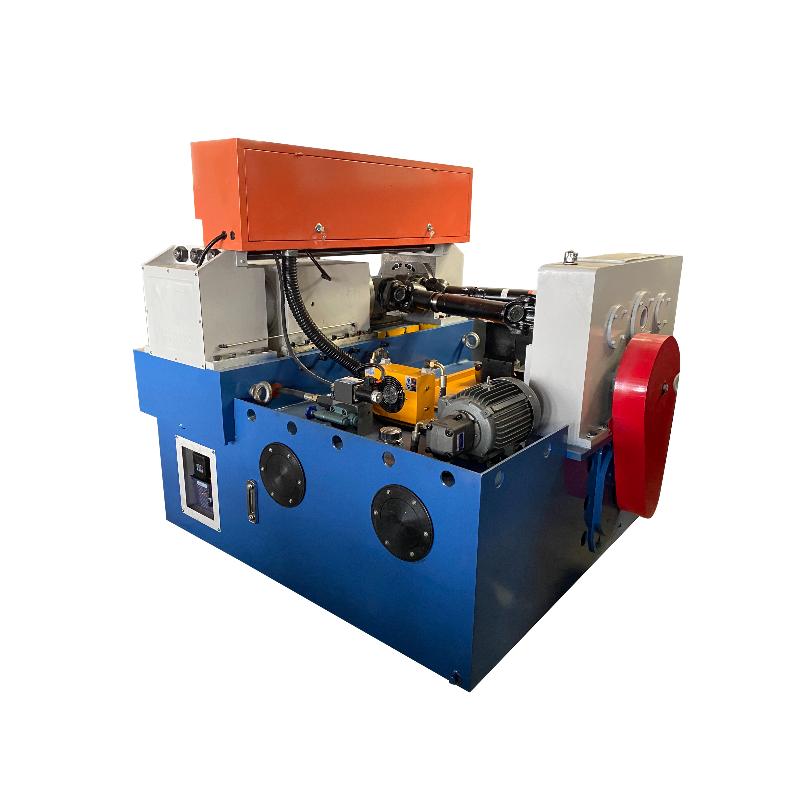
Technical Deep Dive: Parameters and Performance Metrics
Understanding the technical parameters of a cnc thread rolling machine is crucial for selecting the right equipment for specific manufacturing needs. Key specifications include maximum rolling diameter, thread pitch range, spindle speed, motor power, and overall machine dimensions. These parameters directly influence the machine's capacity, versatility, and efficiency. For example, a larger maximum rolling diameter indicates the machine's ability to handle larger fasteners or components, while a broader thread pitch range signifies its adaptability to various thread standards such as Metric (ISO), Unified National (UN), or Whitworth. Modern CNC controls allow for precise adjustment of these parameters, enabling the production of highly accurate threads with tight tolerances.
| Parameter | Range / Specification | Significance |
|---|---|---|
| Max. Rolling Diameter (mm) | 5 - 100 | Determines the largest part diameter it can thread. |
| Thread Pitch Range (mm) | 0.5 - 6.0 | Defines the versatility for various thread standards. |
| Spindle Speed (RPM) | 10 - 200 | Influences production rate and thread quality. |
| Motor Power (kW) | 5 - 30 | Indicates machine's capacity to handle harder materials. |
| Thread Length (mm) | Up to 250 (In-feed), Infinite (Thru-feed) | Maximum length of thread that can be formed. |
| Thread Standard Compliance | ISO, ANSI, DIN, BS | Ensures compatibility with international standards. |
The performance of a cnc thread rolling machine is also evaluated by its ability to maintain consistent thread profiles (e.g., 6g for Metric threads, 2A for Unified) and surface roughness values (typically below Ra 0.8 µm). Advanced machines integrate force monitoring and adaptive controls to compensate for material variations, ensuring uniform quality across high-volume production runs. This level of precision is particularly critical for components subject to high stresses or requiring specific fits, like those in the petrochemical or aerospace industries where failure can have catastrophic consequences.
Comprehensive Process Flow of CNC Thread Rolling
The manufacturing process utilizing a cnc thread rolling machine is a sophisticated sequence designed to produce threads of superior quality and strength. It typically begins with the selection of appropriate raw material, often in rod or wire form. Common materials include various grades of steel (carbon, alloy, stainless), aluminum, brass, and copper. For critical applications such as anchor bolts, high-grade stainless steel like 304 or 316 is frequently used due to its excellent corrosion resistance and mechanical properties. The manufacturing process for the initial blank can involve cold drawing, forging, or precise CNC turning to achieve the exact pre-thread diameter, which is slightly smaller than the nominal major diameter of the thread.
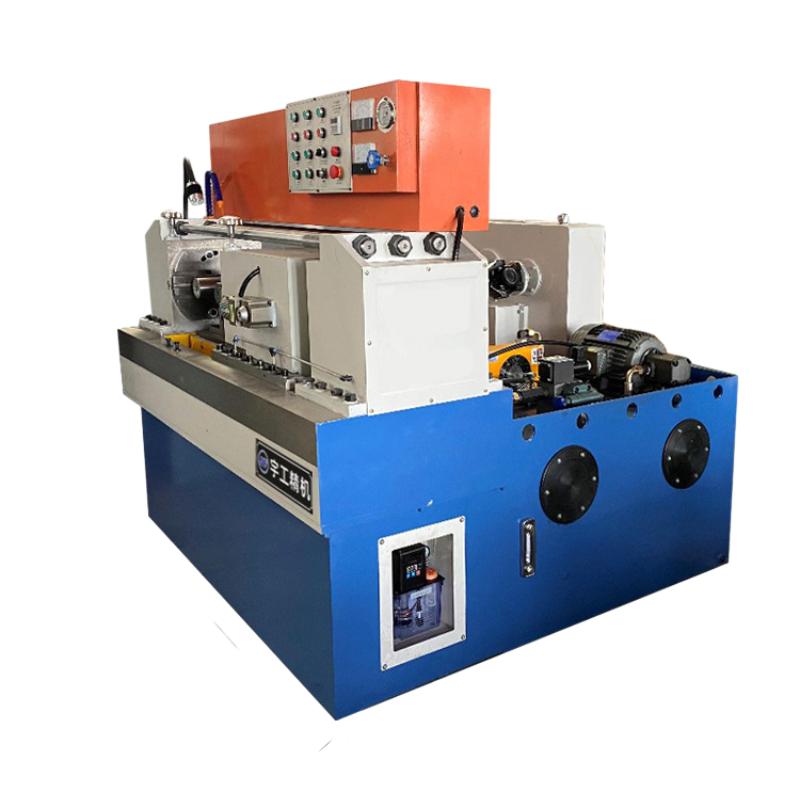
Once the blank is prepared, it is fed into the cnc thread rolling machine. Depending on the machine type – whether it's a two-die (in-feed or thru-feed) or three-die radial machine – the blank is positioned precisely between the rolling dies. These dies, made from hardened tool steel, feature the inverse profile of the desired thread. As the dies rotate and converge, they cold-form the material, displacing it into the thread roots and crests. This continuous flow of material reorients the grain structure, enhancing the thread's strength and resistance to fatigue. The CNC system meticulously controls parameters such as die penetration depth, rolling speed, and pressure, ensuring consistent thread geometry and high precision. For applications in industries like petrochemicals, metallurgy, or water supply and drainage, where components are exposed to harsh environments, this process ensures the integrity and longevity of parts like anchor bolts, preventing premature failure due to corrosion or stress.
Post-rolling, the threaded components undergo rigorous quality inspection. This involves adherence to international standards such as ISO (International Organization for Standardization) for thread profiles and dimensions, ANSI (American National Standards Institute) for fasteners, and specific industry standards. Inspections typically include visual checks, dimensional measurements using micrometers and thread gauges, and sometimes non-destructive testing (NDT) like magnetic particle inspection for sub-surface defects. Products are checked for pitch diameter accuracy, lead accuracy, major and minor diameters, and flank angles. The service life of thread-rolled components, especially those made from stainless steel for corrosive environments, can significantly exceed that of cut-threaded counterparts, sometimes by 50% or more, due to the cold work strengthening and absence of material interruption. This makes them ideal for critical infrastructure and demanding industrial applications, offering substantial long-term cost savings and enhanced safety.
Application Scenarios and Strategic Advantages
The versatility of the cnc thread rolling machine extends across a myriad of industrial sectors, each leveraging its unique benefits. In the automotive industry, thread rolling is indispensable for producing high-strength bolts, studs, and other critical fasteners for engines, chassis, and safety systems, where precision and fatigue resistance are paramount. Similarly, in the aerospace sector, where component integrity is literally a matter of life and death, thread-rolled fasteners are preferred for their superior mechanical properties. The construction industry relies on these machines for producing robust anchor bolts, rebar threads, and specialized fasteners used in demanding structural applications, ensuring stability and long-term durability. For our anchor bolt stainless rod thread making machine thread rolling machine, specific advantages include the ability to process stainless steel rods efficiently, offering anti-corrosion properties vital for outdoor or marine construction.
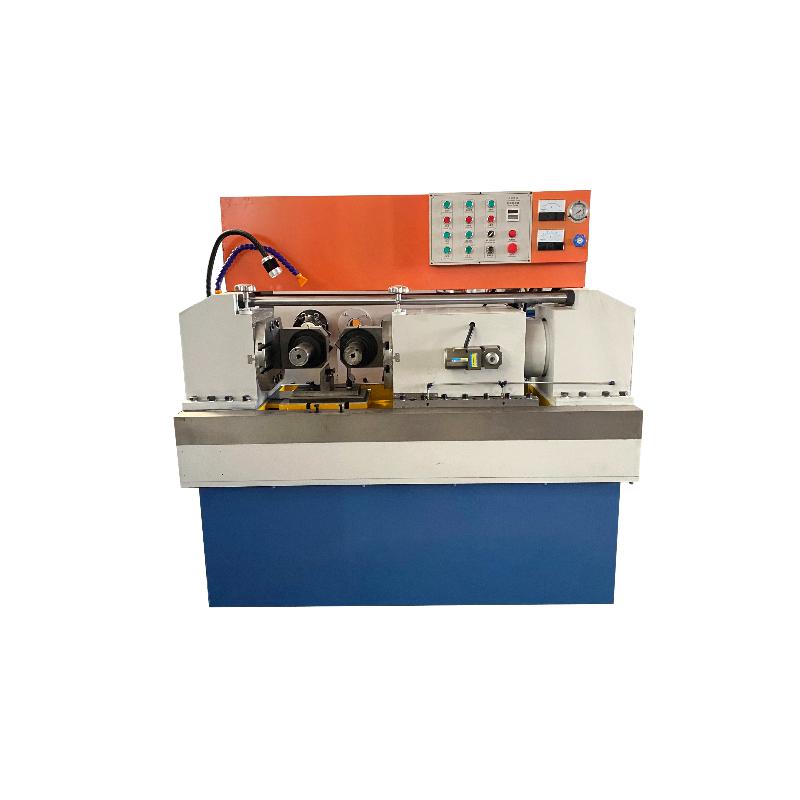
Beyond these broad applications, specialized thread rolling machines like the flat thread rolling machine are crucial for flat components or those requiring complex thread forms, such as self-tapping screws and wood screws. The hydraulic threading machine, on the other hand, excels in generating high rolling forces, making it suitable for larger diameter threads or harder materials, offering greater stability and control during the cold forming process. Even the mini thread rolling machine finds its niche in small-scale, high-precision applications, such as medical instruments or electronics. The primary technical advantages are undeniable: increased tensile strength due to work hardening, improved fatigue resistance because of favorable residual compressive stresses, superior surface finish, and elimination of material waste, leading to significant cost savings.
Moreover, thread rolling offers significant environmental benefits compared to machining. By eliminating chips, it reduces material waste and the need for cutting fluids, contributing to a cleaner, more sustainable manufacturing process. The energy efficiency is also noteworthy; while initial power consumption might seem high, the rapid production cycle and reduced post-processing requirements (no deburring needed for thread quality) lead to lower overall energy expenditure per part. This 'cold-forming' advantage is why industries increasingly favor thread rolling for high-volume, high-quality component production. Our experience working with clients in demanding sectors has repeatedly shown that thread-rolled components provide unmatched reliability and performance, reducing operational failures and maintenance costs over the lifecycle of their products.
Vendor Comparison and Tailored Solutions
Choosing the right cnc thread rolling machine vendor involves a comprehensive evaluation of machine capabilities, technological expertise, and after-sales support. While many manufacturers offer standard models, leading providers differentiate themselves through their ability to deliver customized solutions tailored to specific production challenges. This includes developing specialized dies for unique thread profiles, integrating advanced automation systems like robotic loading/unloading, or configuring machines for unusual material properties or part geometries. A key factor is the manufacturer's adherence to international quality standards such as ISO 9001:2015, which indicates a robust quality management system and commitment to continuous improvement.
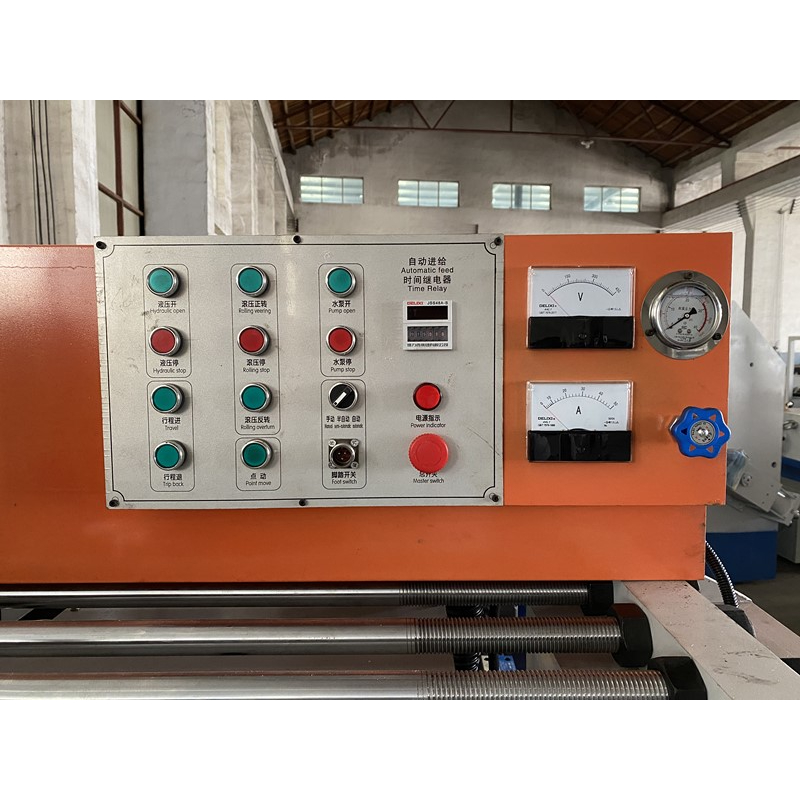
Our company, with decades of experience in precision machinery, offers not just advanced cnc thread rolling machine technology but also comprehensive engineering support to ensure optimal machine performance and customer satisfaction. We specialize in providing bespoke solutions, from initial consultation and design to installation, training, and ongoing maintenance. Our anchor bolt stainless rod thread making machine thread rolling machine is a testament to our commitment to meeting niche market demands with high-quality, durable equipment. We pride ourselves on transparent delivery cycles, typically ranging from 8-12 weeks for standard models and 12-20 weeks for customized configurations, depending on complexity and current production schedules. Each machine comes with a comprehensive warranty, typically 12-24 months on parts and labor, backed by a dedicated customer support team available for technical assistance and spare parts supply.
| Feature | Leading Vendor (e.g., Mote Tools) | Standard Vendor |
|---|---|---|
| Customization Capabilities | High (Special dies, automation, material handling) | Limited (Standard models only) |
| Certifications & Standards | ISO 9001, CE, ASTM compliance | Basic or no public certifications |
| After-Sales Support | Global network, 24/7 technical support, on-site service | Regional, limited hours, basic troubleshooting |
| Warranty Period | 12-24 Months | 6-12 Months |
| Lead Time (Avg.) | 8-20 Weeks (depending on customization) | 6-10 Weeks (for standard models) |
Real-World Impact: Application Case Studies
The tangible benefits of investing in a high-quality cnc thread rolling machine are best illustrated through real-world application cases. Consider a recent project for a client in the renewable energy sector, which required high-strength, corrosion-resistant anchor bolts for offshore wind turbine foundations. Traditional cutting methods proved insufficient due to material work-hardening challenges and the need for superior fatigue life under constant environmental stress. By deploying our anchor bolt stainless rod thread making machine thread rolling machine, the client achieved a 30% increase in bolt strength and a 50% improvement in fatigue life compared to their previous method. This not only enhanced the safety and longevity of the wind turbines but also reduced material waste by 15%, translating to significant cost savings and improved sustainability.
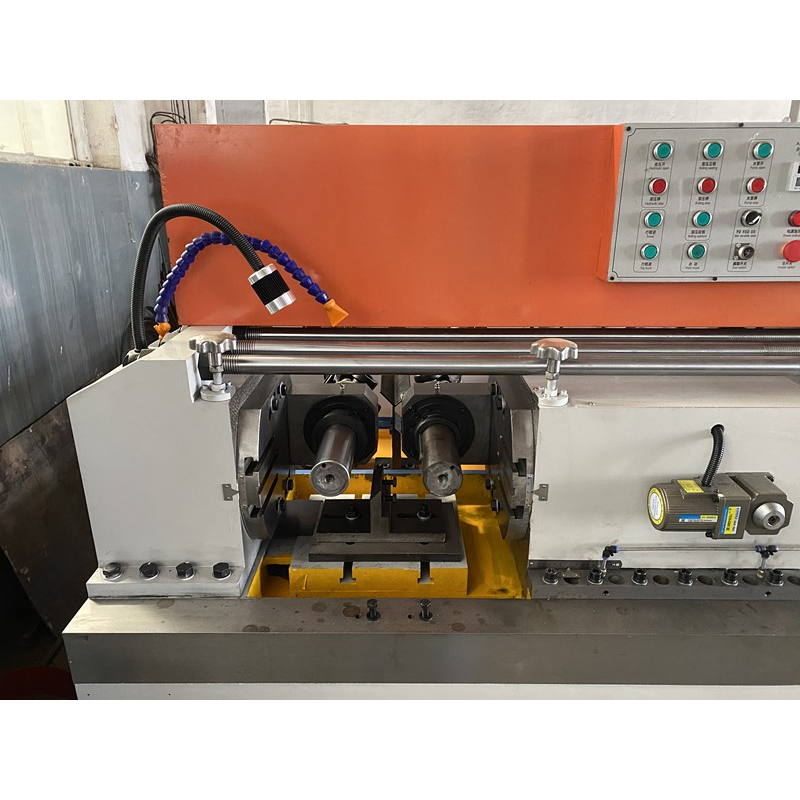
Another compelling case involved a leading manufacturer of hydraulic systems who struggled with consistency and material integrity in their threaded fittings. Their existing machining process often resulted in microscopic cracks and inconsistent thread profiles, leading to a high rejection rate. Implementing our specialized hydraulic threading machine, which features advanced force control and precise die synchronization, allowed them to achieve perfectly formed threads with exceptional surface finish. The rejection rate dropped by over 80%, and the overall production throughput increased by 25%. This improvement not only boosted their profitability but also enhanced their reputation for delivering reliable hydraulic components to their demanding client base in the heavy equipment industry. These examples underscore the transformative impact that advanced thread rolling technology can have on production efficiency, product quality, and long-term operational costs.
Frequently Asked Questions (FAQ)
Q1: What are the primary advantages of thread rolling over thread cutting?
A1: Thread rolling is a cold-forming process that displaces material rather than removing it. This results in superior thread strength due to work hardening, improved fatigue resistance because of favorable residual compressive stresses, a smoother surface finish, and no material waste in the form of chips. It also enhances material grain flow, making the thread more resistant to shearing and stripping.
Q2: Can a cnc thread rolling machine process different types of materials?
A2: Yes, modern cnc thread rolling machines are highly versatile and can process a wide range of materials, including various grades of steel (carbon, alloy, stainless), aluminum, brass, copper, and even some high-nickel alloys. The key is proper die selection, machine calibration, and sometimes specific tooling or lubrication tailored to the material's properties. Our anchor bolt stainless rod thread making machine thread rolling machine is specifically optimized for stainless steel, ensuring high performance.
Q3: What kind of maintenance does a cnc thread rolling machine require?
A3: Regular maintenance for a cnc thread rolling machine typically involves routine lubrication of moving parts, inspection and replacement of worn dies, periodic cleaning of the machine, and calibration checks of the CNC system. Preventive maintenance schedules are often provided by manufacturers, and adherence to these can significantly extend the machine's lifespan and maintain optimal performance.
Q4: What is the expected delivery timeframe for a customized thread rolling machine?
A4: Delivery times for customized cnc thread rolling machines vary based on the complexity of the customization and current production schedules. Generally, our lead times for bespoke solutions range from 12 to 20 weeks from order confirmation to shipment. We provide a detailed project timeline upon order to ensure transparency and manage expectations effectively.
References
- ASM Handbook, Volume 14A: Metalworking: Bulk Forming. ASM International, 2005.
- Kalpakjian, S., & Schmid, S. R. Manufacturing Engineering and Technology. 7th ed. Pearson, 2014.
- Degarmo, E. P., Black, J. T., & Kohser, R. A. Materials and Processes in Manufacturing. 11th ed. Wiley, 2012.
- Schmid, S. R., & Shivpuri, R. Thread Rolling: A Comprehensive Review of Process, Tools, and Materials. Journal of Manufacturing Science and Engineering, 2019.
